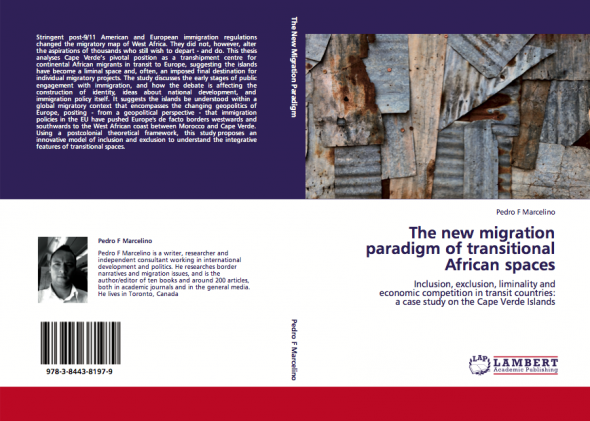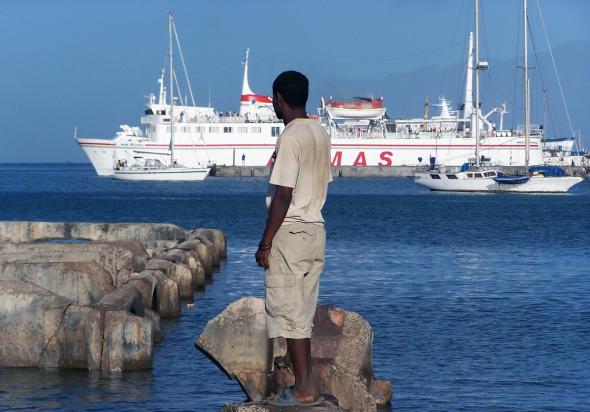York University research published: study on new migratory paradigm in Cape Verde and in Africa

Toronto-based Cape Verdean researcher Pedro F. Marcelino has released a study on the new migratory paradigm emerging in post-9/11 Cape Verde. The study reflects a socio-economic context in which out-migration to traditional overseas destinations is no longer the only migratory phenomenon in the islands. The country has seen a steep increase in part- and full-time resident Europeans, as well as Chinese and continental African migrants. The research stems from fieldwork conducted on site in 2006 and 2009, under the auspices of York University (Canada) and Aberystwyth University (Wales). It proposes that anti-terrorist measures and immigration control policies in both the USA and the EU after 9/11 have altered the migratory map of West Africa, whilst failing to curb people’s aspirations to depart and seek a better life. Based on political discourse analysis, legal and geopolitical context, and interviews with Cape Verdeans and foreign nationals residing in the country, the study addresses recent transformations in the national social fabric. While transit migration is being replaced by permanent settlement, a new ‘ethnoscape’ is emerging, including European and Chinese expats, citizens from other Portuguese-speaking countries, and from mainland Africa – particularly Senegal, Guinea, Nigeria, and Ghana.
 Mindelo, during the work of the author, Pedro F Marcelino. Photography by Felix Schürmann (2006).
Mindelo, during the work of the author, Pedro F Marcelino. Photography by Felix Schürmann (2006).
In many cases, according to the researcher, migratory projects that included Cape Verde as a point of passage end up in voluntary/involuntary settlement in the islands, due to the critical political climate in Europe and in the US. The study further discusses early signs of a public debate on a dedicated migratory policy, going on to consider its effects on national identity and suggesting the islands are becoming – as in the past – a mid-Atlantic transshipment centre, but one that is also growing as an endpoint for some individuals.
The researcher suggests Cape Verde is one of several peripheral nodes on a frequently amended African migratory map increasingly including frontier destinations such as Turkey, Morocco, Argentina or Brazil. These flows respond to political disruptions such as the Libyan crisis, which might already have altered trans-Saharan migration routes, shifting them westwards.The book “The new migration paradigm of transitional African spaces: Inclusion,
exclusion, liminality and economic competition in transit countries: a case study on the Cape Verde Islands” is published in English by LAP Lambert, and is available in all major online stores (Amazon.com). Portuguese and French translations are forthcoming.